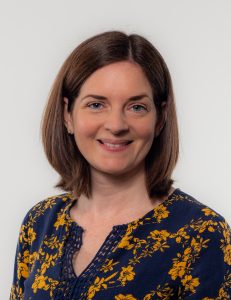As public health officials, community care providers, and policymakers across the country scramble to contend with the devastating effects of the national opioid epidemic, one group frequently falls through the cracks: young people.

Young adult recovery has long been a research specialty for UConn Health associate professor Dr. Kristyn Zajac, who is a clinical psychologist by training. For a variety of reasons, she explains, emerging adults don’t respond as well as older individuals to traditional opioid use disorder (OUD) treatments.
Nonetheless, they comprise “the group that’s been arguably the hardest hit by the opioid epidemic.” And with fentanyl’s increasing prevalence in the opioid supply, young people with OUD are increasingly at a greater risk for overdosing, a trend researchers don’t foresee reversing anytime soon.
Residential and outpatient treatment programs for emerging adults in recovery have proliferated in recent years – including collegiate programs like the Recovery Community Center.
“They [recovery programs] are kind of spreading like wildfire,” Zajac says. “And we think that is great, because we know that they’re helpful. But there’s been almost no research done on them. So, the NIH wants questions answered like, which of these services are the most helpful? For whom are they helpful? Under what conditions are they helpful? And how do we get them out into communities?”
Zajac’s latest research project, the Collaborative Hub for Emerging Adult Recovery Research (CHEARR), is a cross-organizational, boundary-breaking collaboration geared toward improving outcomes for young adults in treatment for OUD. Funded by a nearly $2 million grant from the National Institutes of Health’s Helping to End Addiction Long-Term (HEAL) Initiative, CHEARR is filling a gap in existing opioid recovery research by focusing on the efficacy of specific support services for young adults. By studying the outcomes associated with these services, researchers will be able to develop a new set of standards for young adult recovery programs.
“When you meet with a really young person who has had their whole life torn apart because of addictions, you just want to help fix the problem.”
First up for Zajac’s team will be forming two community boards that will advise and guide researchers throughout the initiative. One board will be made up of young adults with lived experience in recovery from OUD; the other will comprise recovery coaches who have worked with emerging adult populations with OUD. Zajac describes both boards as “partners” in the development of research priorities.
“The goal is that we should really be talking with the patients who are most affected by the condition, whereas historically research has kind of come top-down — we say, ‘This is what we think is the best thing to do,’ without really having a dialogue with those patients that are most affected,” Zajac says. “These community boards are the core of what we’re going to be doing.”
CHEARR’s second chief focus will be developing a pipeline of researchers who are interested in recovery support services. The project will encompass a variety of initiatives to stimulate further research in recovery support, as well as opportunities to synthesize existing research in the subfield through national conferences and other forms of research networking.
“We’re going to have a student internship – hopefully we’ll have a lot of UConn undergraduate students in that – and we’re also going to have a postdoctoral fellowship,” Zajac says. “And for both of those, we’re going to be trying to choose applicants who have lived experience of their own in recovery, or with familial substance use problems, so that they have their own personal experience to pull from. We’ve learned more and more as researchers that when people have personal experiences with the problems that they’re studying, they bring a very unique perspective and really enhance the research.”
Zajac’s cross-country collaborators include the Connecticut Community for Addiction Recovery (CCAR) and researchers at the Oregon Social Learning Center, the University of Massachusetts Chan Medical School, and East Tennessee State University. At UConn, she is supported by her co-investigator Dr. Lourah Kelly, a postdoctoral fellow at UConn Health.
As CHEARR develops, Zajac hopes that the community connections it generates will attract even more research interest and form a nationwide web of problem-solvers dedicated to supporting young adults in recovery.
“When you meet with a really young person who has had their whole life torn apart because of addictions, you just want to help fix the problem,” Zajac says. “This is a devastating problem. It’s so widespread, and we need to figure out the best way to fix it.”



